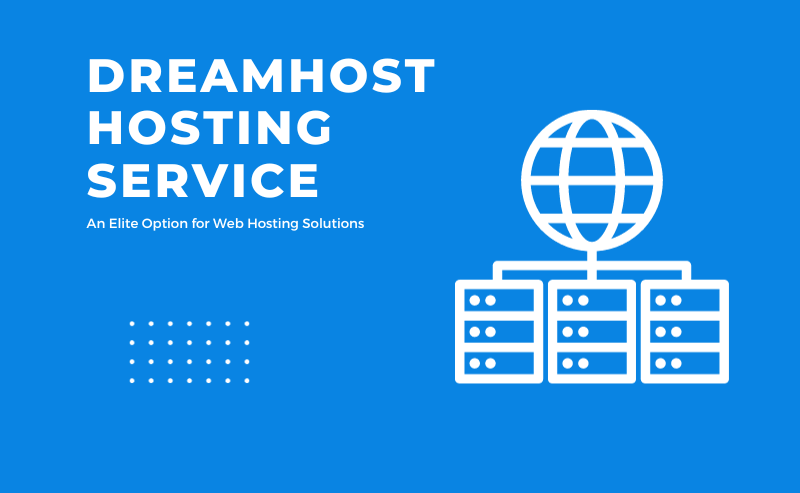If you are considering Headless CMS vs WordPress, it is important to understand their crucial differences for your website’s performance. Using a headless CMS provides more flexibility and customization because it separates the front end from the back end. It may, however, require more technical expertise and resources. Meanwhile, WordPress is more user-friendly, especially for beginners, because it combines the front and backend.
Headless CMSs offer more flexibility when it comes to customization, allowing you to create a unique website. But if you’re not familiar with coding or have limited technical knowledge, WordPress might be a better option. It features a variety of themes and plugins that are easily customizable without requiring a lot of coding knowledge.
A2 Hosting and BlueHost are excellent choices for hosting headless CMSs and WordPress. Beginners and experts alike highly recommend them, as they provide reliable and compatible hosting solutions. It ultimately comes down to your personal preferences and level of technical expertise to decide whether a headless CMS or WordPress is right for you. Choose the option that best aligns with your needs based on factors such as customization, user-friendliness, and community support.
Table of Contents
Headless CMS vs WordPress: How Do They Differ?
In terms of architecture and functionality, a headless CMS vs WordPress differs. While WordPress combines both the front end and back end, headless CMS separates them to allow for customized content delivery. A Headless CMS often provides better scalability, performance, and security.
However, WordPress is more user-friendly and customizable due to its larger user base and plugin library. It is important to consider your needs and technical expertise before choosing one over the other.
Headless CMS vs WordPress: How Do Their Performances Compare?
Headless CMS can offer superior performance in some aspects to WordPress. Headless CMS speeds up loading times and improves performance by separating the front end and back end. As a result of sending data exclusively through an API, server processing is reduced, resulting in faster response times. Moreover, Headless CMS platform often feature scalability, which makes it more efficient at handling high traffic volumes.
Since WordPress is a centralized CMS, its performance may be slower relative to other CMSs. WordPress’ front end and back end are tightly integrated, so every request passes through the platform before being displayed. As a result, server response times can be longer and performance may be slower, especially during busy periods.
Headless CMSs generally offer superior performance, but it’s important to consider other factors such as ease of use, plugin availability, and customizability. Both Bluehost and A2 hosting provide reliable performance and scalability for Headless CMS and WordPress.
Headless CMS vs WordPress: What Are The Pros and Cons of Each?
Headless CMSs provide flexibility and scalability, allowing you to choose any technology stack for your front end. As a result, you are able to build dynamic and interactive websites and applications. Headless CMS, however, requires more technical expertise to set up and maintain.
While WordPress, is easy to use and has a large active community of support. Moreover, it provides a wide range of eye-catching themes and templates.
The choice between a headless CMS vs WordPress depends on your particular requirements and technical skills. Choose a Headless CMS if flexibility and customization are important to you. WordPress is a good choice if you’re looking for simplicity and a large community. Make an informed decision based on factors such as scalability and development resources.
Headless CMS vs WordPress: Which Offers More Customization?
Headless CMS provides superior customization options compared to WordPress. Headless CMSs allow for complete control over the presentation layer, while WordPress is restricted to themes and plugins. Therefore, you can create a highly customized and unique user experience using any front-end framework or technology.
It is also dependent on your technical expertise and development resources how much customization you can accomplish.
A Headless CMS vs WordPress: Which Is More User-Friendly for Beginners?
Headless CMSes tend to be more difficult to use for beginners than WordPress. Beginners will find WordPress easy to create and manage content with its straightforward interface and visual editor. Additionally, it provides comprehensive support for beginners through its extensive documentation and large community.
Headless CMS, however, requires more technical expertise. Since it separates the content management backend system from the front end interface, developers will have to develop custom front end experiences using APIs. It can be difficult for beginners without coding experience.
WordPress might be more suitable for beginners who are looking for a more user-friendly solution. Overall, however, a decision between Headless CMS vs WordPress will depend on the individual’s preferences and needs. Hosting options like Bluehost or A2 Hosting can also improve the overall performance and user experience of WordPress and Headless CMS.
Headless CMS vs WordPress: Which Platform is More Cost-Effective for Your Needs?
Based on their different pricing models, Headless CMS vs WordPress serve different user types and have different needs.
Headless CMS typically operate on a subscription-based model with variable pricing, which can become expensive as service levels increase. While the development and customization costs associated with Headless CMS could be higher initially due to the need to create a separate front end, these costs may be more predictable on an ongoing basis. Companies often choose Headless CMS because it offers more flexibility, scalability, and a more custom-tailored solution that integrates seamlessly with their other technical stacks.
However, WordPress has an open-source core that is free to use, but hosting, premium themes, plugins, and potential maintenance and development costs could add up. Initially, WordPress sites might cost less because of inexpensive hosting options and pre-built themes. However, over time, the costs may vary due to changes in security, scalability, and updates.
WordPress’ pricing plans can be viewed here.
Headless CMS vs WordPress: Which Is The Right Choice for Your Website Needs?
When comparing Headless CMS vs WordPress, it’s clear that each platform suits different skill levels and needs. Headless CMS offers unmatched customization and flexibility for developers looking to create unique user experiences with modern front-end technologies. It excels at performance, allowing for fast and scalable applications due to its separate architecture. There, however, are some downsides, including complexity, which may act as a barrier for non-technical individuals.
On the other side of the spectrum, WordPress stands out with its ease of use, making it an ideal choice for beginners or those who prefer a more straightforward content management experience. Its extensive library of themes and plugins makes it possible to create beautiful websites without coding knowledge. Even though it might not perform as well as Headless CMS in high-traffic scenarios, WordPress remains an effective solution for a variety of web projects.
Overall, the decision between a headless CMS and WordPress will depend on your specific needs. Headless CMS could be the right option if you have the development resources and need a high-performance website or application. Choose WordPress if you want a user-friendly platform with a lot of support and resources that can still produce professional-looking sites quickly.

